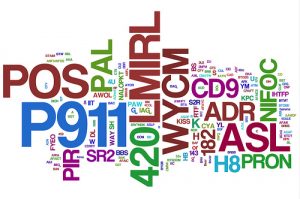Abbreviations are everywhere you look. In an age where most of us are in a hurry, it makes sense to cut words short. However, all those three letter abbreviations can cause confusion. Lots of us think we know what they mean, but have completely the wrong end of the stick. That’s certainly the case when it comes to the CRB check. Does it mean what you think it means?
CRB Check – A Definition
 Although you’ll still see lots of references to CRB checks, this is an outdated term. CRB stands for Criminal Records Bureau. Until 2012, the CRB was the body in England and Wales which processed police checks on people applying for a wide range of professions. On 1 December 2012, a new body called the Disclosure and Barring Service (DBS) was founded. This replaced the old CRB. DBS only applies in England and Wales. There are separate bodies called Disclosure Scotland and AccessNI for other parts of the UK. You can no longer apply to the CRB for a police check – it doesn’t exist any more. That doesn’t stop people talking about CRB checks though, but what they really mean is a check through the Disclosure and Barring Service.
Although you’ll still see lots of references to CRB checks, this is an outdated term. CRB stands for Criminal Records Bureau. Until 2012, the CRB was the body in England and Wales which processed police checks on people applying for a wide range of professions. On 1 December 2012, a new body called the Disclosure and Barring Service (DBS) was founded. This replaced the old CRB. DBS only applies in England and Wales. There are separate bodies called Disclosure Scotland and AccessNI for other parts of the UK. You can no longer apply to the CRB for a police check – it doesn’t exist any more. That doesn’t stop people talking about CRB checks though, but what they really mean is a check through the Disclosure and Barring Service.
Getting a CRB or DBS Check
When people talk about “getting a CRB Check”, they are referring to the process of being checked out by the police. There are three different levels of checking done through the DBS – basic, standard and enhanced. The type of check you have will depend on the work you are going to be doing. You can’t decide what level of check you want and neither can your employer. The government has a long list of occupations needing police checking, and at what level.
The process for applying for a DBS check is the same, whatever the detail. First you’ll need to complete the application form, and it’s easiest to do this online. We can help you apply for your DBS and make sure everything is correct with your application. The form is straightforward and asks for your personal details such as name, date of birth and an address history. You’ll also be asked about previous convictions and any other names which you have been known by.
After you’ve filled in the form, you’ll be asked for some official documents which show who you are and where you live. This means supplying things like bank statements, passport, utility bills or your driving licence. The form then goes off to the DBS for processing. The length of time it takes to turn around a check depends on where you live but usually takes around four weeks.
Renewing a CRB Check
DBS checks, like the CRB checks which went before, don’t have an expiry date. Most employers will ask you to repeat the process every few years. One advantage which DBS has over the CRB system is that there is the option to subscribe to an Update service, which allows online access to your police records. This is particularly valuable if you change jobs frequently.